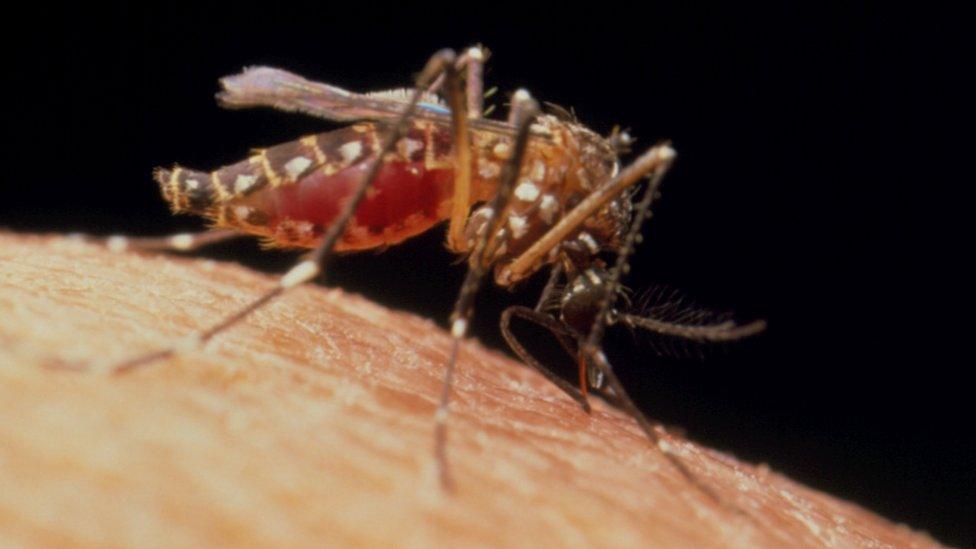Rio Olympics Zika: The trouble with Aedes Aegypti
- Published
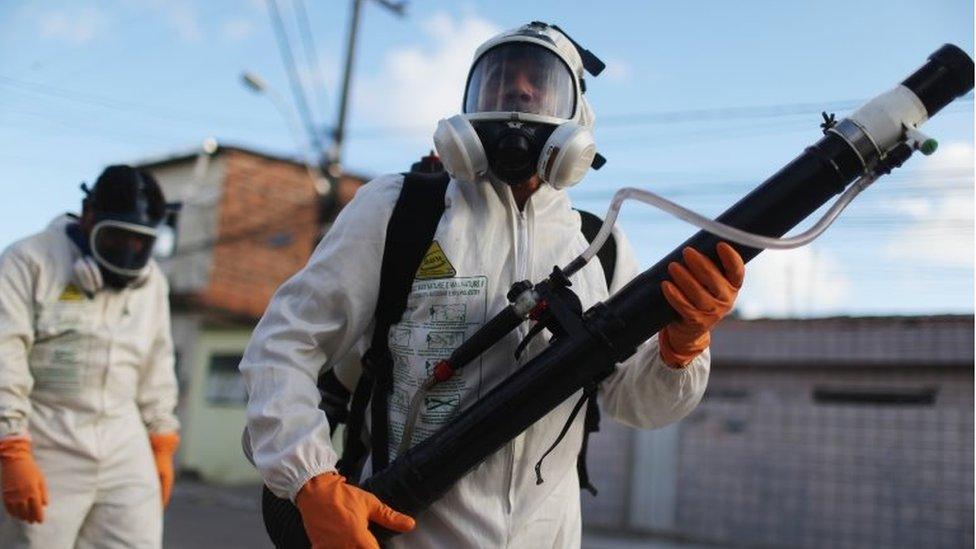
The Brazilian government hopes that fumigation will decrease the number of mosquitoes
It seems almost inconceivable that the world's biggest sporting event could be derailed by a tiny insect, the Aedes aegypti mosquito.
However distant or unlikely that possibility is, Brazil's government is going to great lengths to persuade athletes and visitors that Rio de Janeiro will be perfectly safe come the Olympic Games opening ceremony at the Maracana Stadium on 5 August.
"We estimate that fewer than one in 500,000 visitors to Rio will contract the Zika virus," said Ricardo Barros, Brazil's new health minister.
What you need to know about Zika
Mr Barros has only been in the post for a month, after the impeachment process against Dilma Rousseff forced a change of government, but he clearly sees reassuring Brazil and the world over the Zika outbreak as his number one priority.
Obvious concern
I asked the minister how the government could be so confident in asserting that there was an "almost zero" risk of contracting Zika when the latest advice from the World Health Organisation (WHO) was that "women in Zika-affected areas should consider delaying becoming pregnant".
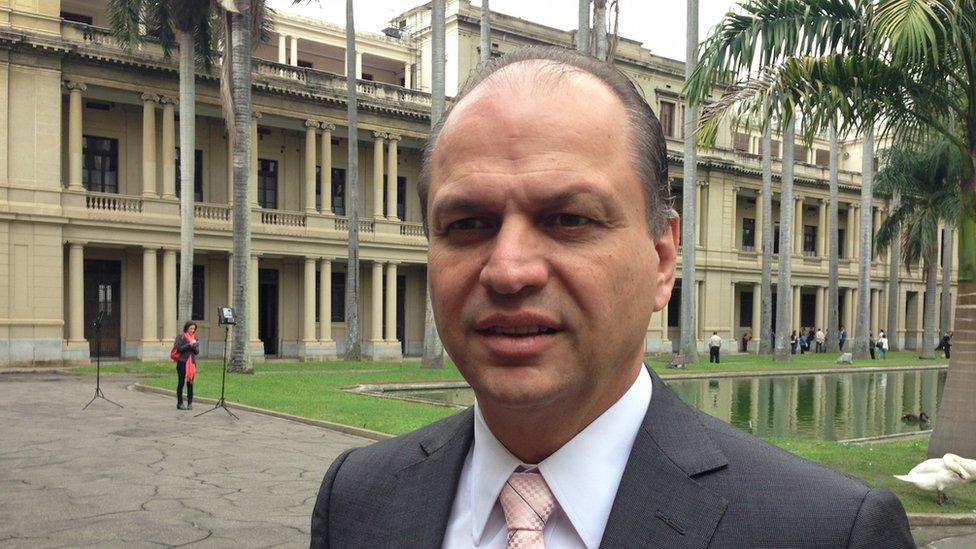
Ricardo Barros is Brazil's new health minister
"There's no contradiction," replied Mr Barros.
"We are working closely with the WHO but our figures show that rates of Zika infection have fallen by 87% this year already."
In Brazil, there have been more than 1,500 confirmed cases of microcephaly, in which babies are born with abnormally small heads.
With other neurological conditions also blamed on Zika, there is obvious concern about the virus.
After the WHO's advice that pregnant women should not travel to Zika-infected areas and subsequent evidence that the virus could be transferred through sex as well as via the bite of an infected mosquito, a handful of athletes declared they would not be participating in Rio 2016.
Other big names, including Irish golfer Rory Mcllroy and UK heptathlete Jessica Ennis Hill, said they would be in Rio after having initially expressed concern about travelling.
Long jumper Greg Rutherford, who won a gold medal at the 2012 Olympic Games in London, is even thought to have frozen his sperm as a precaution before he travels to defend his title in Rio.
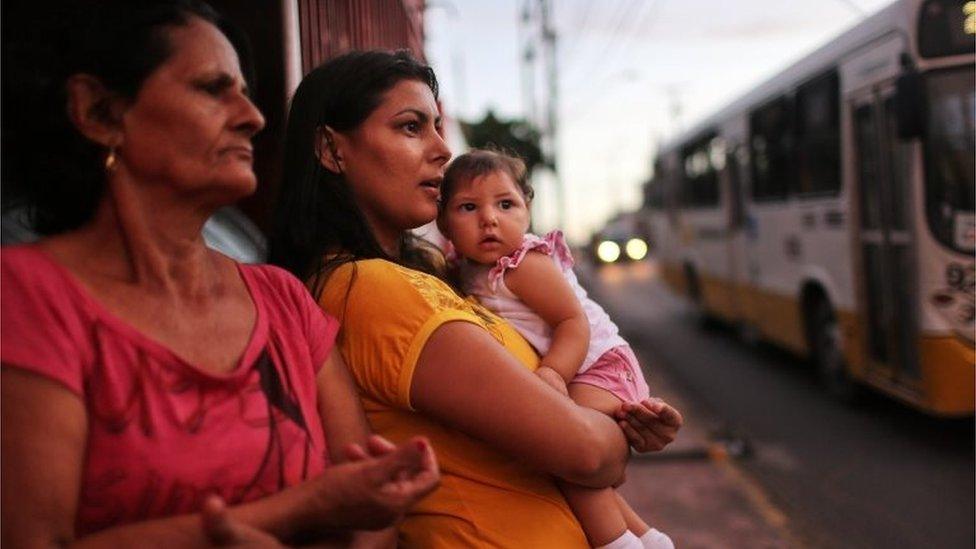
Zika has been linked to microcephaly in babies and many pregnant mothers worry
The stakes have been raised further by a recent letter calling on the WHO to recommend that the Rio Olympics should be cancelled over fears about Zika.
The open letter, external has been signed by more than 200 academics and specialists, among them prominent Brazilian anthropologist Deborah Diniz.
"There is a clear risk to global health in sponsoring these Olympic Games inviting half a million people to Brazil," she argues.
"Having an epidemic like this poses concrete risks to women of reproductive age."
Backlash
Such arguments brought a rapid backlash from other specialists, who said the outbreak was now under control.
Political leaders in Rio, including the city's often outspoken mayor, Eduardo Paes, also reacted.
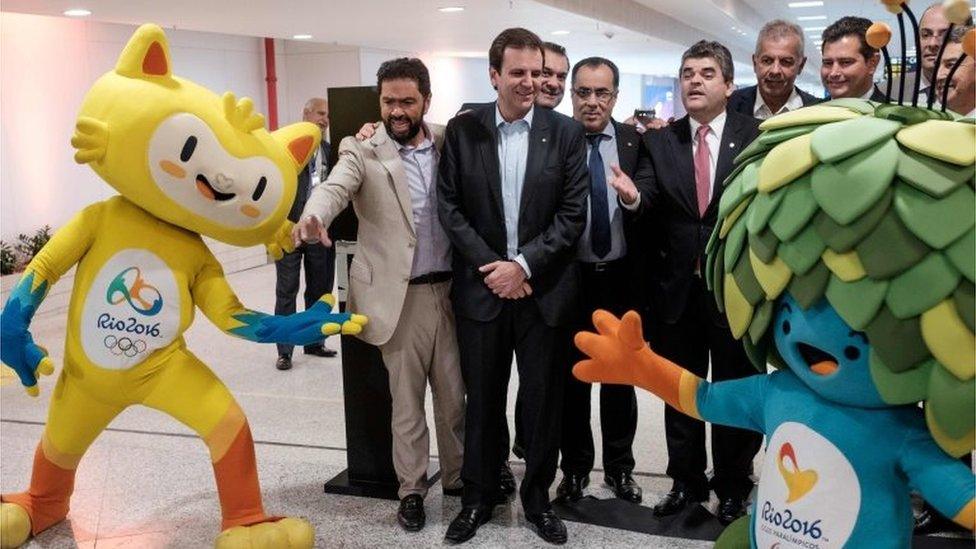
Rio Mayor Eduardo Paes (centre) says says suspending the Games would be "crazy"
Mr Paes told the BBC that calls for the Olympics to be called off were a complete overreaction.
"It's completely crazy," said Mr Paes, who has also had to defend a series of other setbacks associated with the Games, including severe delays to critical transport networks and broken promises to clean up the city's chronically polluted waterways.
"At this time of the year, in August, when the Olympics are going on, there are no cases of dengue or Zika because of the weather," he said.
"I don't want to minimise it at all but there's a lot of exaggeration going on."
The mayor is adamant that public information campaigns and greater general awareness about Zika are having an impact.
Old habits die hard
We joined one such campaign "on patrol" in the sprawling working class suburb of Jacareipagua, about a mile from the main Olympic Park to the south of Rio.
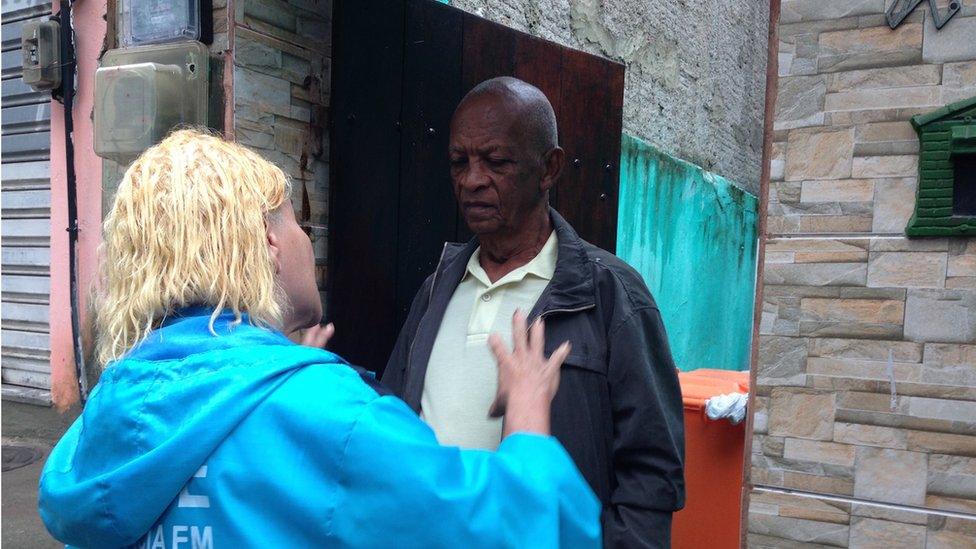
Health workers advise people on how to stop the spread of mosquitoes
A team of public health officials in brand-new uniforms knocked on doors in streets around the local clinic to inform residents about the importance of taking precautions against disease-carrying mosquitoes.



"We show them how to cover up areas of still or stagnant water, where the Aedes [mosquitoes] might breed," a team leader told me.
But in these areas, in particular, old habits die hard.
"I don't use repellent - I never have," said local resident Paulo Jose, reflecting the widely held view that somehow people here are immune to diseases like Zika and dengue fever.
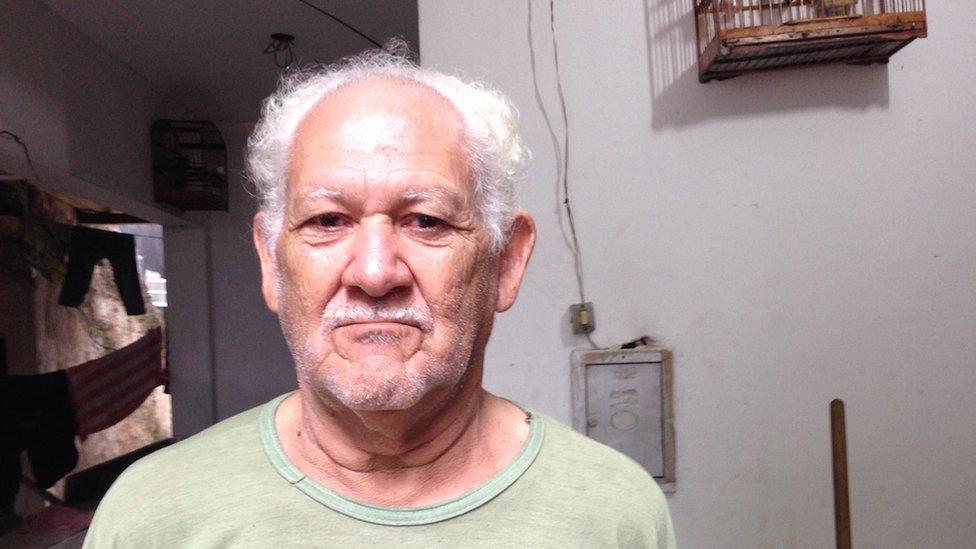
Paulo Jose says he has never used insect repellent
As Paulo Jose was listening to the advice, I must have caught and squashed at least five mosquitoes in the space of 30 seconds.
The white-washed wall was stained red with little spots of blood, evidence that the insects had recently been feeding.
Notwithstanding the difficulties in getting the message through in some areas, the Brazilian government says it is dedicating unprecedented resources to the fight against Zika and other mosquito-borne diseases.
In Rio de Janeiro alone, the government says it has allocated more than $17.5m (£12.4) to "reinforce" the local health network during the Olympic and Paralympic Games.
They say there will be more ambulances, extra health professionals and at least 3,000 people working on anti-Zika campaigns in the city.
Best hope
Verifiable figures for people who contracted Zika are difficult to pin down and vary wildly from state to state, not helped by the fact that many of those infected show few if any symptoms at all.
There is still a lot to discover about the Zika virus, how it is contracted and what other conditions, in addition to microcephaly, it may be responsible for.
There is no vaccine yet, for example, and definitive tests to show if someone has definitely had the virus are still not widely available.
Cancelling the Olympic Games would be an extreme measure at this late stage and perhaps, indeed, a measure too far.
The best hope, for the Games organisers and Rio city officials, may be a continuation of the extremely cold weather we have been having in Brazil recently.
Temperatures have been so low the mosquito population in parts of Brazil could be decimated, for the duration of the Olympic and Paralympic Games at least.
- Published31 August 2016
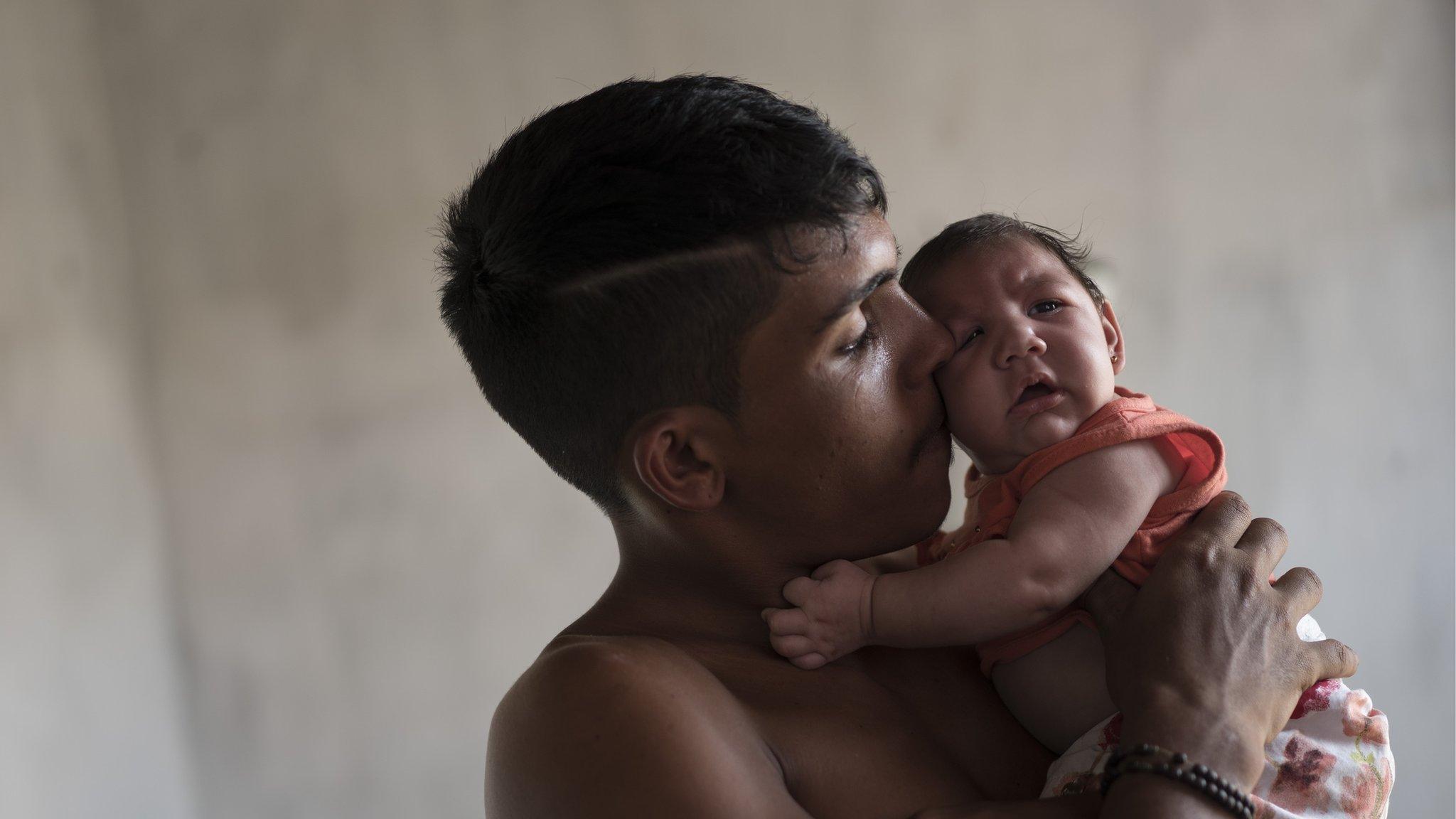
- Published28 May 2016

- Published28 January 2016
